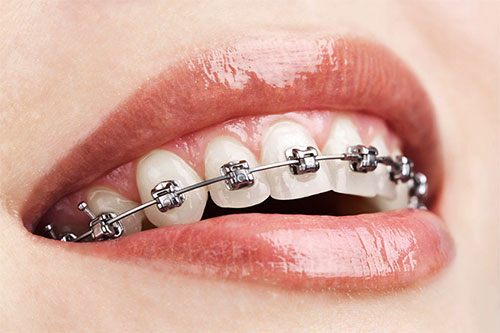Overview
| Interim Program Director: | Soumya Padala, DDS, DMD Program Director |
| Program administrative support contact: | Hope Cason |
| Department phone: | (706) 721-8942 |
| Department fax: | (706) 723-0217 |
| Program length: | 30 months |
| No. of residents accepted: | 3/year |
| PASS participant: | Yes |
| MATCH participant: | Yes (The Orthodontic Program reserves the right to only interview applicants participating only in the MATCH) |
| DMD/DDS: | Applicants must have a DMD/DDS from a dental school that is accredited by the American Dental Association (ADA) Commission on Dental Accreditation (CODA) by the program start date. |
| Accreditation status: | The program in orthodontics and dentofacial orthopedics is accredited by the Commission on Dental Accreditation and has been granted the accreditation status of “approval without reporting requirements”. The Commission is a specialized accrediting body recognized by the United States Department of Education. The Commission on Dental Accreditation can be contacted at (312) 440-4653 or at 211 East Chicago Avenue, Chicago, IL 60611. The Commission’s web address is: http://www.ada.org/en/coda. The Commission on Dental Accreditation has accredited the program in orthodontics and dentofacial orthopedics. However, accreditation of the program does not in itself constitute recognition of any dental specialty status. |
| Beginning date: | June 23, 2025 |
| National Boards: | Applicants must have successfully passed the INBDE - Integrated National Boards Examination or both NBDE Parts 1 and 2 of the National Board Dental Examination by the Match Deadline. |
| State Licensure: | Residents must be eligible for state licensure by program start date. |
Admission Requirements
Dentists graduated from American Dental Association (ADA) Commission on Dental Accreditation (CODA) accredited Dental Schools are eligible for admission to the Advanced Education Program in Orthodontics.
We only consider candidates who are U.S. Citizens or Permanent Residents.
Applications for the Advanced Education Program are received through the PASS program.
Application materials are reviewed and candidates with the highest qualifications
are selected for an interview. Applicants are required to complete the GRE and should
submit scores through PASS by the program application deadline.
Applicants born outside the United States and whose native language is not English
must take the Test of English as a Foreign Language, the Internet-based version of
TOEFL (iBT TOEFL). Minimum scores are 100, and 26 in the speaking component. No candidates
are admitted to the program without a personal interview. Non-discriminatory policies
are followed in selecting the applicants.
The Certificate Program
The Advanced Education Program in Orthodontics provides a comprehensive course of study in clinical and didactic orthodontics. In addition, a publishable paper on an approved orthodontic subject must be completed. Successful completion of the curriculum fulfills all the educational requirements for eligibility for the examination by the American Board of Orthodontics.
Program Fee, Stipends, Equipment and Benefits
Tuition:
There is no tuition associated with the certificate program in orthodontics. If the
resident is enrolled in the Master of Science in Oral Biology degree program, he must
pay tuition for courses taken through the Graduate School. References should be made
to the current Augusta University Catalog for specific information regarding Graduate School tuition and fees.
Stipends:
The residents in orthodontics share a small stipend provided by Wellstar/MCG Health.
The stipend support ranges from zero to approximately $4,100 depending on the year
in the program. Augusta, Georgia is a beautiful city with a low cost of living. This makes it ideal for residency
training from a financial standpoint.
Equipment:
Most supplies and equipment associated with the clinical program are provided by the
institution.
Benefits:
The Dental College of Georgia provides malpractice insurance coverage for residents
while providing patient care at Augusta University. This insurance does not cover
any outside dental practice. Orthodontic residents are eligible to participate in
the Student Health Care Program at Augusta University at no cost.
Leave:
Residents are entitled to Augusta University employee holidays, though assignments
for emergency coverage must be maintained. Residents are entitled to annual leave,
educational leave and sick leave, at the discretion of the Program Director, as outlined
in the Dental College of Georgia Leave Policy for Dental Residents.
The Facilities
The orthodontic residents treat patients in a 16-chair clinic housed in the Dental
College of Georgia that is devoted exclusively to providing orthodontic patient care.
Immediately adjacent to the clinic are laboratories, a seminar room and shared office
space for residents.
The Master's Degree Program
The Graduate School offers a Master of Science in Oral Biology degree which may be taken in conjunction with the certificate curriculum. This joint program gives the student more extensive experience in research and basic science education and requires an in-depth original research project leading to a defended thesis.
Application to the graduate program is made after acceptance to the certificate program. If the applicant desires to concurrently pursue a Master of Science in Oral Biology degree with the specialty program, the program length could be approximately 6-12 months longer. Tuition is charged on a per hour basis for the graduate courses taken. The applicant must be accepted by The Graduate School and the Department of Oral Biology.
Gainful Employment Disclosure
This information is currently being updated.
Augusta University is an affirmative action/equal opportunity educational institution that prohibits discrimination on the basis of age, disability, gender, national origin, race, religion, sexual orientation, or status as a Vietnam War Era veteran.
